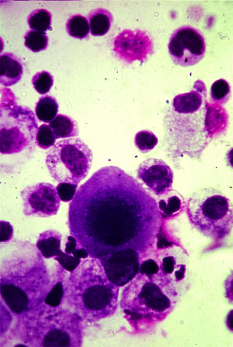Tech targets cancer genes
 Researchers at the Peter MacCallum Cancer Centre have used CRISPR technology to target cancer mutations previously considered untouchable.
Researchers at the Peter MacCallum Cancer Centre have used CRISPR technology to target cancer mutations previously considered untouchable.
New research showcases a method that selectively silences genetic drivers of pancreatic, colorectal, and lung cancers.
Dr Mohamed Fareh and his team have devised a way to shut down the KRAS G12, NRAS G12D, and BRAF V600E mutations - genetic changes that fuel the unchecked cell growth seen in some of the deadliest cancers.
By reprogramming the CRISPR-Cas13 tool to degrade specific RNA messages, the team achieved a high level of precision, leaving healthy cells untouched.
“This work demonstrates the incredible potential of CRISPR-Cas13 to act as a precise, mutation-specific drug,” said Dr Fareh.
“With further development, this platform could transform the way we treat cancers driven by hard-to-target mutations.”
CRISPR-Cas13, unlike the better-known DNA-targeting Cas9, focuses on RNA - the intermediary between DNA and proteins.
By introducing carefully designed mismatches into the guide RNA, the researchers forced CRISPR-Cas13 to selectively destroy mutated RNA transcripts.
This innovative approach bypasses the structural similarity challenges that make traditional drugs ineffective against these mutations.
“By blocking only the mutated genes, we not only increase efficacy but also reduce the risk of side effects,” Dr Fareh explains.
While the results mark a significant advance, the technique is currently confined to the lab.
The team is optimistic about its potential to evolve into personalised cancer treatments tailored to individual genetic profiles. However, challenges such as efficient delivery methods and sustained effects remain.
The mutations targeted by this research are major drivers of malignancy, collectively implicated in up to one-third of human cancers.
Their high prevalence in pancreatic, colorectal, and lung cancers makes them critical targets for therapeutic innovation.
The work is also a demonstration of CRISPR-Cas13’s adaptability.
Beyond targeting these specific mutations, the study provides a framework for addressing other point mutations across different cancers. The reduced off-target activity seen in this system could further advance gene-editing as a therapeutic tool.
Supported by mRNA Victoria, Cancer Council Victoria, and Luminesce Alliance, the research is the latest step in a growing effort to tackle ‘undruggable’ genetic drivers.
The full study is accessible here.







 Print
Print



